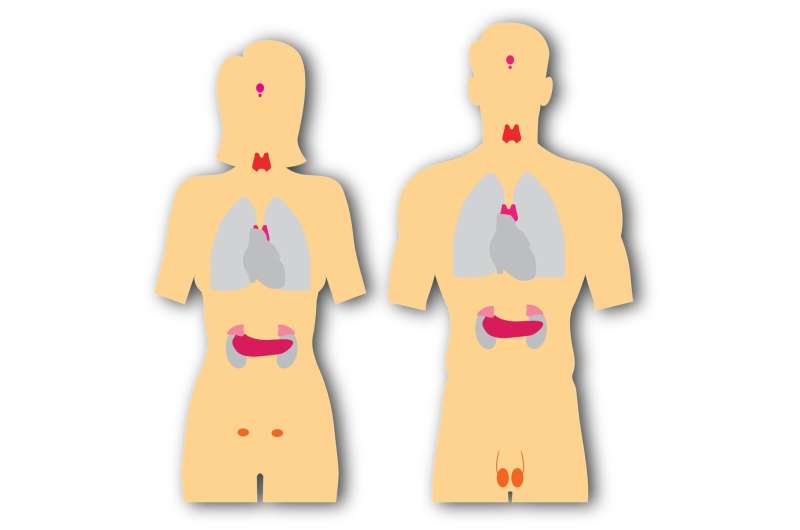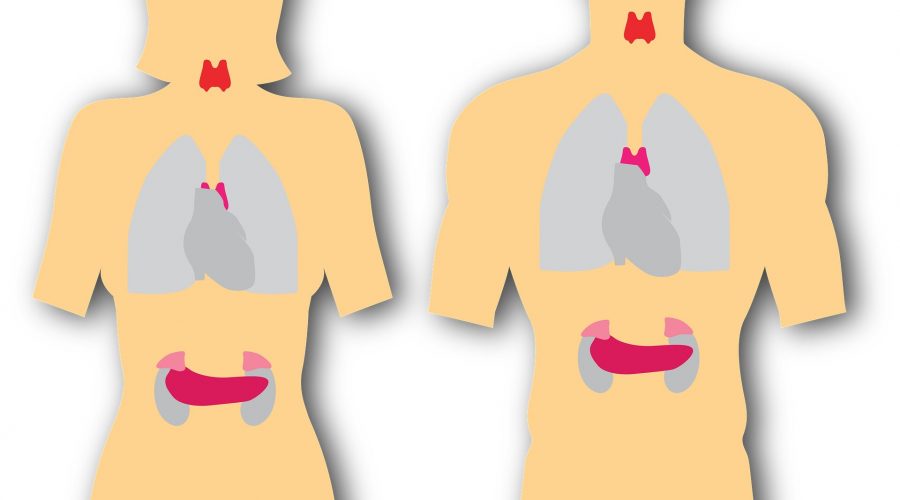Thyroid hormone replacement undertreatment linked to worse hospital outcomes

Undertreatment with thyroid hormone replacement can put patients with hypothyroidism at risk for worse hospital outcomes, including longer length of stay and higher rates of readmission, according to a new study published in the Endocrine Society’s Journal of Clinical Endocrinology & Metabolism.
Hypothyroidism, or an underactive thyroid, is a condition in which the thyroid gland does not produce enough thyroid hormone. It is a common disease in the United States, with millions of patients taking thyroid hormone replacement. Treatment can be challenging, and patients can be overtreated or undertreated, according to lead study author Matthew D. Ettleson, M.D., of the University of Chicago in Chicago, Ill.
“We found that those patients who were undertreated with thyroid hormone, even weeks or months prior to hospital admission, had worse hospital outcomes than those without hypothyroidism,” said Ettleson. “This has not been shown previously.”
The study included 43,478 patients from a large, U.S.-based patient claims database. Of these patients, 8,873 had hypothyroidism. The researchers divided patients into four groups based on their levels of thyroid stimulating hormone (TSH). Low levels of TSH indicate a patient has been overtreated for their thyroid disease, while high levels of TSH correspond to undertreatment.
Patients with a high TSH level before hospitalization had a length of stay that was 1.2 days longer, a 49% higher risk of 30-day readmission, and a 43% higher rate of 90-day readmission compared with patients without hypothyroidism.
Those with a normal TSH level before hospitalization had a decreased risk of dying in the hospital and decreased 90-day readmission rate compared to patients without hypothyroidism.
Source: Read Full Article
